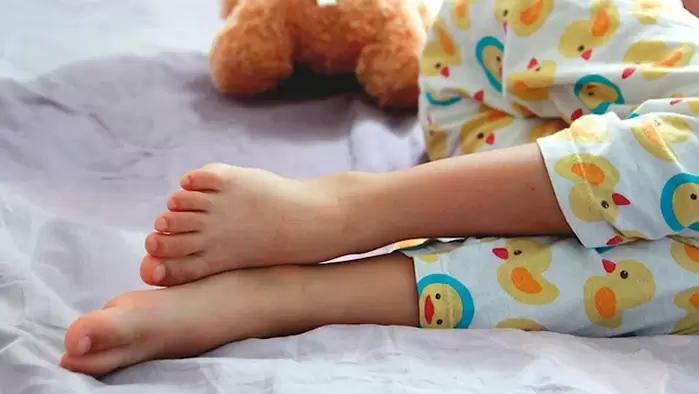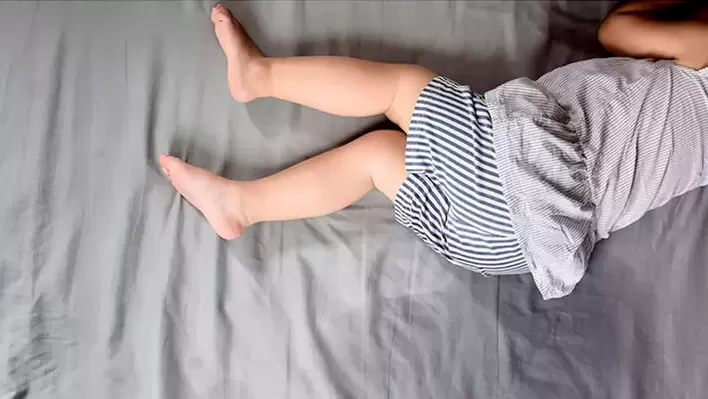Genetics is a pathology in which a person cannot control the emptying of the bladder. In the vast majority of cases (more than 95%), we are talking about child remains when urination has not yet been fully formed. However, this disease is also found in adults, especially in the elderly, when the ability to control bladder emptying has been lost.
When a person sleeps, the problem of involuntary urination is mainly manifested (up to 80% of all cases). During sobering periods, this is much less.
There is no exact information about the prevalence of this disease, as it is related to parents always turning to doctors. It is reported that enuresis occurs in 5-10% of cases in 5-year-old children; in 3-5% of 10 years of age; in 15 years and above (relics of adults and adolescents).

Disease Type
Classify wills according to various parameters. According to the root cause of the disease, distinguish between:
- The main will. According to statistics, it accounts for more than 90% of the cases in children under the age of 5. A characteristic of major genetics is that there is no neurological or urological pathology that a person may develop urinary incontinence. With this disease, when the child wakes up, the child does not have long (from 3 to 6 months). As we age, the share of major enuretics in the incident structure decreases. For example, about 50% of children aged 12 and older have accounts.
- Secondary will. This type of pathology is also called recurrence because it occurs again after long-term remission. In this case, there are links to some urological, endocrine or neurological diseases that can lead to involuntary urination. It should be noted that these problems may occur first after the child controls urination (however, the following 6 months are no earlier than 6 months).
Depending on the time of manifestation, the disease can be of the following type:
- Body at night. This is the most common version of the disease that manifests at night. Nocturnal incontinence in the urine is supposed to be associated with childhood or small volumes of bladder maturation. Hormonal causes are also possible - for example, low levels of vasopressin. This is a hormone that can moisturize in the body. The disease can also have a very strong sleep with the child and is difficult due to awakening.
- Daily will. The form of this disease is less common. It is characterized by the patient having problems with urination during the day.
According to the accompanying disease and complications of enuresis, it occurs:
- Simple. In this case, the patient has no pathological changes caused by urinary incontinence.
- Complex. The form of the disease is discussed when it is set in the context of other diseases. For example, these are infections or abnormalities of the urinary system development, nerves and other pathology.
Enorez Prevention
Parents can recommend some precautions to prevent the onset of the disease. Such events include:
- Treat urinary tract infections in a timely manner;
- Control the volume of liquid the child consumes during the day, but in this case it is worth considering season and air temperature;
- Health and hygiene education for babies. This means teaching hygiene care for the genitals;
- Reject diapers in time. Usually, when the child reaches two ages, the diapers are completely discontinued.
- If the child continues to have an onset of urinary incontinence at night until the age of six, it is necessary to take measures to conduct a comprehensive examination of the baby to determine the cause of the disease and its treatment.
Causes of disease development
The reasons for development are unknown. In this regard, experts have proposed various theories, each with many indirect evidence and are often considered in treatment. Consider these theories in more detail:
- Violation of maturity. It is assumed that involuntary urination at night or during the day is associated with delays in human nervous system development. Furthermore, these violations may be organic and psychological in nature. In the first case, we are talking about direct lesions in certain structures of the brain, spinal cord, or peripheral nerves (e. g. , due to infection). Psychological factors may be emotional shocks, traumatic experiences, and other factors.
- Genetic. According to some observations, if the child’s parents also suffer from the disease at once, the chances of this disease are higher. Due to the deliciousness of this problem, it is difficult to identify this pattern.
- Hormonal theory. The possible reason for nocturnal urine is to violate the secretion of vasopressin. This hormone contains water in the body and its yield increases at night. Therefore, healthy people during sleep rarely worry about urination. If the child lowers hormone production at night, then this will help with development. It must be said that this hormone imbalance is observed in certain pathology, such as fenasal diabetes.
- pressure. Still not sure where the chicken is and where the egg is. According to observations, many children with urinary incontinence have stress and other psychological factors. For example, inexplicable fear, low self-esteem and others. At the same time, when genetic problems are solved, the patient's psychological state usually improves. Therefore, it is possible that in a person's psychological state it is possible to continue to occur and become a factor.
The above theory mainly involves children. As for adult wills, the following violations and circumstances are here for behavior adverse factors:
- Pathology of the nervous system, such as stroke, spinal cord injury, neurogenic bladder, etc. ;
- Diseases of the urinary system, including renal failure, prostate pathology, decreased pelvic floor muscle tone, frequent urinary tract infections and other diseases;
- Pregnancy, because in this state, the stress of the uterus (especially the fetus and/or its active movement magnitude) is on the bladder.
This problem can also be caused by taking some medications (such as birth control pills).
Symptoms of the disease
The main symptom of Enorez is involuntary urination. Most of the time, this happens at night, but also during the day (during awakening). In the context of urinary incontinence, the following symptoms may also occur:
- shy
- closure;
- cruck complexity;
- Emotional instability;
- Aggressive behavior (in rare cases).
Adult inheritance can be accompanied by frequent urination (usually in the context of certain diseases). Due to weaknesses in the pelvic floor muscles (which develop with age), urine may leak during sudden movements, coughing or even resting.
complication
There are two main complication groups and hereditary:
- Psychological and neurological complications. This is mainly applicable to children. The child feels inferior and is closed. For example, some aspects of children's life become inaccessible to camps. Adult wills can also cause such problems. All of these are serious factors in the development of anxiety and depression.
- Complications of urinary organs. The risk of urinary tract infections and inflammatory diseases is increased. These are cystitis, urethritis, prostatitis and other pathology, which manifest as uric acid pain, atypical emissions of the urethra, and pain in the cort bone and waist area.
diagnosis
With the help of a will, it is initially recommended to contact a pediatrician (if we are talking about a child) or a therapist. After preliminary examination and investigation, the doctor can direct the patient to a specialist with a stenosis - a urologist, nephrologist, psychiatrist, or neurologist.

Typically, the diagnosis includes the following events:
- Investigation and neurological examination;
- Ultrasound of the kidneys and bladder;
- General urine analysis and Nechiporenko's analysis;
- X-rays in the waist area.
In rare cases, patients will target other studies, such as CT or MRI.
Enorez Treatment
Enorez's treatment is comprehensive. Consider the main components of this therapy:
- Drug treatment. Drugs that reduce the amount of urine produced are specified. This is an analog of the hormone vasopressin. Dosage and reception modes are selected so that the moisture mainly lingers at night (if we are talking about night wills).
- How to take liquids and nutrition. Doctors will make recommendations about the use of fluids and electricity systems. In this case, it is necessary to consider the food and diet of a child or an adult, his level of physical exercise, the presence of the disease, and many other factors. In particular, it is recommended to abandon the use of caffeinated beverages as they can enhance altruism and help increase additional liquids. If the patient is exercising (which means it is sweating actively), then let us receive the increased intake of fluid.
- Warhead alarm clock. In the early part of the last century, a special imitation alarm was developed to treat Enorez. The first such alarm is designed to shut down the principle of the circuit when the first batch of urine appears. At the same time, the patient is troubled by a small amount of electrical emissions because one person is awakened. The modern decorative alarm clock is acoustic and is equipped with a sensitive moisture sensor. The most common choice is the clips attached to the lingerie. After the first drop of urine enters the sensor, the alarm clock works. The task of this treatment is to form a reflex "urge to urinate - awakening". There are also some special papers with sensors, but, unlike clip clips, in which case the signal is triggered later when the urine flow has reached the paper. The efficacy of treatments for single brain inheritance at night is about 70-80%.
Depending on the accompanying disease, hereditary treatment can also be assumed by correcting mental or neurotic disorders. The complex handling of the problem is also provided for meetings with psychologists. At the same time, there will be no harm in consulting with the child’s experts and parents. Psychologists will tell you how to properly motivate your child so that they meet all the doctor’s instructions for urination control. Punishment of children or the formation of adverse emotional environments in the family (due to urinary incontinence) is unacceptable and only exacerbates this condition.
Rehabilitation
Usually, in children, this pathology is performed after treatment or independently, which is about inheritance in adults (because it occurs in the context of certain chronic diseases). Therefore, no recovery is required after treatment. In some cases, the child needs a course with a psychologist or psychotherapist who will help him socialize if the patient has previously encountered certain difficulties in the psychological nature.
prevention
No specific measures were taken to prevent inheritance. It is important for parents to add solutions to the problem at an early stage without waiting for the disease to spread itself. As for adults, in this case, this may be a precautionary measure:
- Timely treatment of bladder diseases and other urological pathology;
- an active lifestyle;
- Doctors’ preventive examinations, especially after 45 years.

















